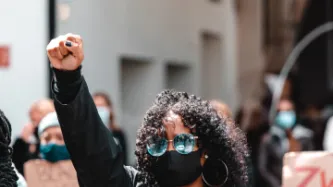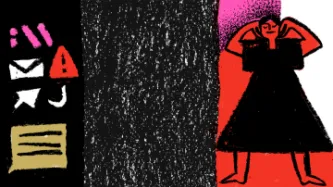Advanced Search
Content Type: Examples
Immunity passports are likely to increase discrimination and threaten fairness and public health - and won't work for practical reasons. First and foremost, scientists do not yet know whether infection confers immunity or for how long; the serological tests so far developed are insufficiently reliable; the volume of testing required is not feasible; and no country has enough survivors of COVID-19 to boost its economy. There are also numerous ethical objections.
Writer: Natalie Kofler and…
Content Type: Examples
It's been two months since the launch of "Perú en us manos", the mobile app promoted by the Peruvian government amidst the Covid-19 pandemic. Until now the app did not accomplish the ambitious goals it set out to.
On its first month the app had detected 1400 risk zones while there where already 36,000 confirmed infection cases. There is little transparency on how those risk zones are estimated. Developers of the app state that only one fifth of the data provided by the Health Ministry is clean…
Content Type: Video
You can find out more about Haki na Sheria here: http://hakinasheria.org/
Find out more about double registration in Keren's piece "In Kenya, thousands left in limbo without ID cards" in CodaStory: https://www.codastory.com/authoritarian-tech/kenya-biometrics-double-registration/
Find out more about the Huduma Namba case on our website: https://privacyinternational.org/news-analysis/3350/why-huduma-namba-ruling-matters-future-digital-id-and-not-just-kenya
You can listen and…
Content Type: People
Ksenia is a Legal Officer at PI. She leads PI’s programme focusing on police surveillance technologies, data exploitation and the law. She is also responsible for legal research and litigation on surveillance and data protection. Prior to joining PI, Ksenia taught law at Queen Mary, University of London and Royal Holloway, University of London.
Ksenia has a PhD from Queen Mary, University of London. Her research examined the contemporary phenomenon of ‘revenge pornography’ and analysed…
Content Type: News & Analysis
On June 9th, in light of the global debate against racial injustices, the company IBM announced they would stop selling facial recognition. In a letter to the US congress, they demanded a “national dialogue on whether and how facial recognition technology should be employed by domestic law enforcement agencies.”
It is worth noting first of all that it is not entirely clear that IBM is actually stopping facial recognition. The letter states that "IBM no longer offers general purpose IBM facial…
Content Type: News & Analysis
Yesterday, Amazon announced that they will be putting a one-year suspension on sales of its facial recognition software Rekognition to law enforcement. While Amazon’s move should be welcomed as a step towards sanctioning company opportunism at the expense of our fundamental freedoms, there is still a lot to be done.
The announcement speaks of just a one-year ban. What is Amazon exactly expecting to change within that one year? Is one year enough to make the technology to not discriminate…
Content Type: Long Read
1. What are the barriers to access safe and legal abortion care?
Abortion is considered a crime in Brazil, except in cases of pregnancy resulting from rape, when it puts the woman's life at risk or, most recently, in cases of fetal anencephaly. Article 273 of the Penal Code also forbids the sale or distribution of medication that is not registered at Anvisa (National Health Agency), which is the case for abortion pills in Brazil. Misoprostol, the active substance of abortive medicines in the…
Content Type: Examples
The UK's Project OASIS collects data from third-party app providers that are collecting COVID-19 symptoms and demographic data to help the NHS respond to the COVID-19 pandemic. The Ministry of Defence Strategic Command's technology innovation hub, JHub, has been brought in to provide assistance and coordination, and to facilitate the secure transfer of relevant symptom and epidemiology data from the third-party apps to NHSx. Part of JHub's role is to remove any identifying information, erase…
Content Type: Examples
A 13-year-old girl who travelled into Hong Kong from New York and was ordered to quarantine and issued with a wristband was spotted dining with her uncle in a Japanese restaurant by another diner, who video recorded her and posted the clip to social media, where it went viral. She and several others who were also caught when their wristbands were spotted were found by police and sent to government quarantine facilities.
https://www.scmp.com/news/hong-kong/law-and-crime/article/3076707/…
Content Type: Examples
Ukraine's quarantine measures in order to contain the spread of the coronavirus included prohibiting visits to parks and sports fields, banning gatherings of more than two people, requiring everyone to wear masks and carry ID cards when outside their homes, as well as closing educational institutions, restaurants, cafes, entertainments, and fitness centres. Regional authorities were required to set up border points with mandatory inspections of passing vehicles, and everyone arriving into the…
Content Type: Examples
Guatemala, El Salvador, Honduras, Haiti, Jamaica, and Ecuador have all asked the US Immigration and Customs Enforcement to screen migrants in detention for COVID-19 before deporting them. At least 85 deported Guatemalans have tested positive, accounting for about a fifth of all the cases reported in the country, and cases of infection have also been reported in deportees to Haiti, Mexico, and Colombia. In total, eight countries have reported positive COVID-19 cases among recent deportees,…
Content Type: Examples
The UK's NHSx contact tracing initiative requires anyone who tests positive for COVID-19 to provide the full name, postcode/house number, phone number, and email of anyone they've been in contact with, and Public Health England will keep the data for 20 years. The privacy notice was quickly updated to not that those testing positive will also be asked for NHS number, sex, symptoms, and when symptoms started. Those gaining access to the data will include two outsourcing companies, Serco and…
Content Type: Examples
Singapore has launched a new FWMOMCare mobile app for workers to record daily symptoms and report their health status. Reporting symptoms prompts the worker to seek medical assistance; a doctor will also be alerted and call the worker within 30 minutes for a teleconsultation. Employers are told to encourage all workers to download the app, but it is mandatory for certain groups of migrant workers who live or work in higher risk settings such as dormitories and temporary quarters.
https…
Content Type: Examples
China is adding new features to its coronavirus surveillance app, which has helped many workers and employers return to their former lives, and looks likely to become a permanent fixture. Zhou Jiangyong, the Communist Party secretary of the eastern city of Hangzhou, has said the city's app, which it has begun linking to citizens' medical records, should become a beloved "intimate health guardian" for residents, who can use it to schedule hospital visits. The authorities are considering…
Content Type: Examples
The UK government, in collaboration with universities, water companies, and public research bodies, is preparing to launch a national research programme to develop an early warning system for future waves of COVID-19 by detecting the coronavirus in sewage. About half of those infected with SARS-CoV-2 excrete it in their faeces, and enough virus survive to be detectable in untreated water using ultrasensitive PCR analysis. Teams in the UK, several other European countries, Australia, Israel, and…
Content Type: Examples
The Chinese city of Hangzhou is considering making the app it requires residents to download and install for the COVID-19 crisis and that controls whether and where residents may travel a permanent fixture to create a "firewall to enhance people's health and immunity". Other countries may follow suit. Concerns include function creep, institutionalised geo-tracking, and the retention of data long after its original purpose has been fulfilled.
https://www.newsweek.com/covid-19-contact-tracing-…
Content Type: Examples
Police have ordered protests in Hong Kong to stop, citing social distancing rules. The renewed protests are to oppose the Chinese plan to write a new national security law for Hong Kong, as well as a separate plan by Hong Kong officials to criminalise disrespect for the Chinese national anthem. Many believe the protests will escalate as social distancing restrictions ease.
https://www.nytimes.com/2020/05/22/world/asia/hong-kong-china-protest.html
Writer: Vivan Wang and Austin Ramzy
Publication…
Content Type: Examples
Technical flaws in Moscow's app, intended to track people with COVID-19 and symptoms of other respiratory diseases, led the authorities to wrongly fine hundreds, perhaps even thousands, of people, alleging they had breached self-quarantine. The app was originally launched at the end of March, but had to be taken down and relaunched in late April, when Moscow's mayor decreed that anyone displaying symptoms of a respiratory disease, as well as those testing positive for COVID-19, and anyone…
Content Type: Examples
In a preprint study of primary sewage sludge from a northeastern US metropolitan area, researchers detected SARS-CoV-2 RNA in all environmental samples and found that the concentrations of virus RNA were highly correlated with the COVID-19 epidemiological curve and local hospital admissions. The RNA concentrations were a seven-day leading indicator ahead of compiled COVID-19 testing data, and led hospital admissions by three days. Collecting environmental samples at a wastewater treatment…
Content Type: Examples
The lower house of the French parliament paved the way for the launch of the government's independently-developed contact tracing app. The minister in charge, technology minister Cedric O, praised the app, developed by companies such as Orange and Dassault Systemes, as a French project "with the excellence but also the panache and some would say the stubbornness which characterises our country". O added that although 22 other countries have opted to use the Google/Apple platform, it was not a…
Content Type: Examples
As part of a survey of the human rights compliance of contact tracing apps Amnesty International's Security Lab discovered that security vulnerabilities in Qatar's mandatory contact tracing app, EHTERAZ, would have allowed attackers to access the personal information, including name, national ID, health status, and location data, of the app's more than 1 million users because the central server did not have security measures in place to protect the data. The authorities fixed the problem within…
Content Type: Examples
On the day South Korea relaxed its social distancing measures, a 29-year-old man tested positive for COVID-19. The previous weekend, he had visited five nightclubs in the gay district of Itweon in Seoul, mingling with around 7,200 other people. After nearly 80 new COVID-19 cases have been linked to that one man's outing, the mayor ordered all clubs and bars closed indefinitely, and led officials to push back reopening schools by a week. Soon aftewards, another infected man was found to have…
Content Type: Examples
Contact tracing apps will only work effectively if people trust them and install them in sufficient numbers. Soon after its launch, however, the North Dakota contact tracing app people were already dropping it after posting complaints in the Google App store. In a survey of 798 Americans, researchers at Microsoft Research, Johns Hopkins University, and the University of Zurich found that nearly half said they would not install a COVID-19 contact tracing app that has false negatives or could…
Content Type: Examples
South Korea's second spike in coronavirus cases was curbed via a contact tracing regime that uses credit card records, mobile phone tracking, and GPS location data in order to track the previous movements of infected individuals working alongside efficient diagnostic testing. Successfully tracing an outbreak in Itaewon to a gay barhopper, however, led to reports of homophobic abuse targeted at the South Korean LGBTQIA community, and online criticism has led some who should be self-isolating to…
Content Type: Examples
The best contact tracers in US history were a group of mid-20th century venereal disease investigators working for a programme at the Centers for Disease Control and Prevention whose strategy eventually led to the eradication of smallpox in the 1970s. Talking to infected people and tracking down their vague descriptions of contacts at a time when VD was a source of shame was challenging; recruits were required to have a college degree, preferably in liberal arts, and a varied background of work…
Content Type: Examples
Local health authorities in Germany have relied on human contact tracers since the country confirmed its first COVID-19 cases early in 2020, and say that doing so has helped the country keep its death rate comparatively low even with a less restrictive lockdown than many other countries. Germany aims to have 16,000 contract tracers overall, or five for every 25,000 people. Tracing involves phoning each newly-diagnosed patient and asking their movements; those who have been in close contact for…
Content Type: Examples
NHS Digital has added facial recognition to its app, which allows people to order prescriptions, book appointments, and find health care data, in hopes it will also be usable as an "immunity passport" once at-home testing becomes available. The NHS facial recognition system was built by iProov, and is available in England for both Android and iOS devices; users enroll by submitting a photo of themselves from an official document such as a passport or driving licence and then using the phone to…
Content Type: Examples
Estonia has begun testing its Immuunsuspass app, which was developed for the Back to Work NGO by the Estonian technology firms Transferwise and Guardtime working with health specialists. The app, which is intended to help schools and employers make decisions, will have to pass scientific consensus before being approved for use. It allows users to access COVID-19 test results for an hour after proving their identity, and issues them with a QR code valid for one minute that they can use to show…
Content Type: Examples
Numerous companies are repurposing their body monitors, asset trackers, and electronic ankle monitors and marketing them to the newly-created market for strap-on surveillance bracelets to enforce quarantine and social distancing including companies such as AiRISTA Flow. Redpoint Positioning Corporation, Israel-based SuperCom.
https://theintercept.com/2020/05/25/coronavirus-tracking-bracelets-monitors-surveillance-supercom/
Writer: Sam Biddle
Publication: The Intercept




